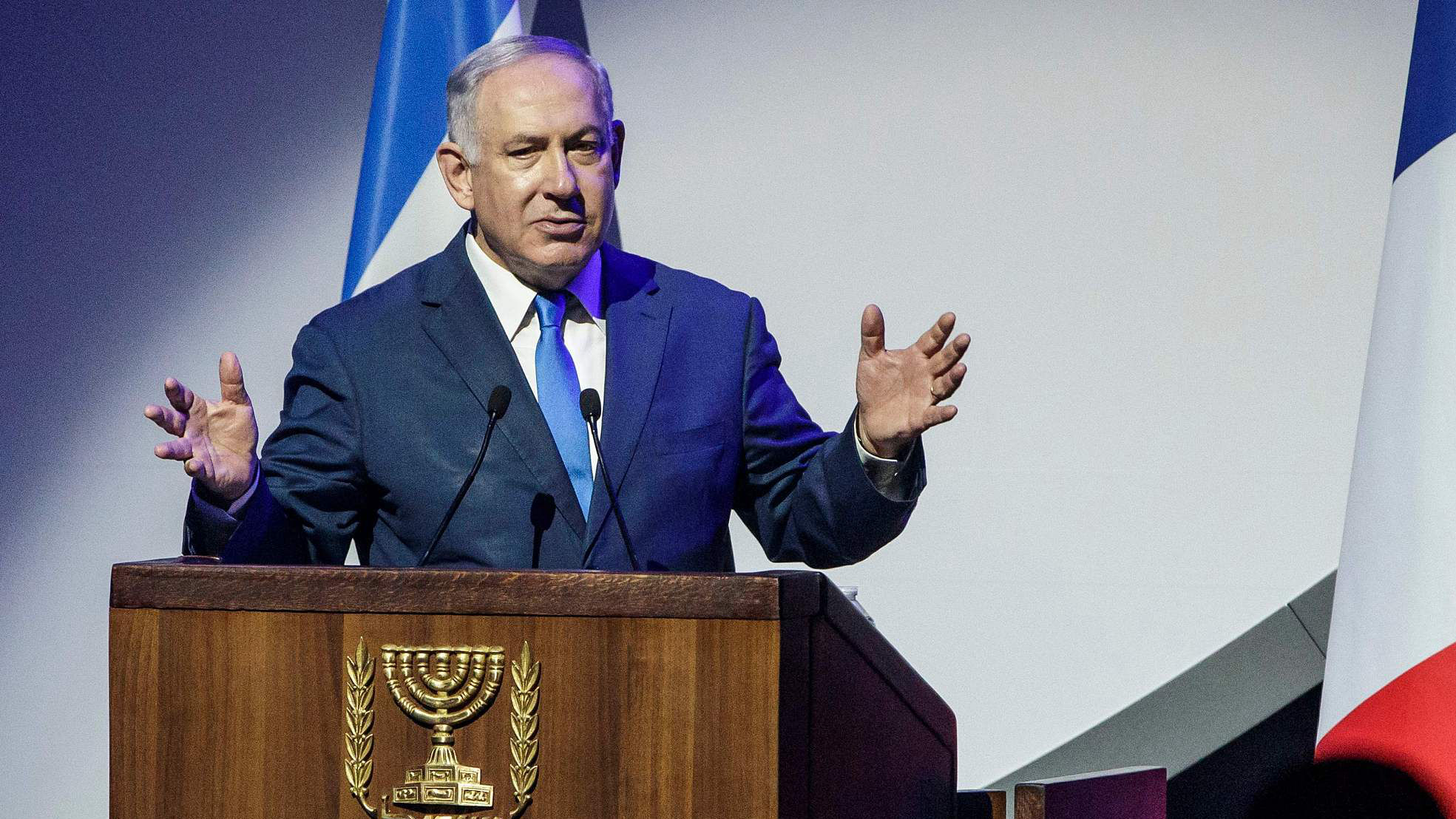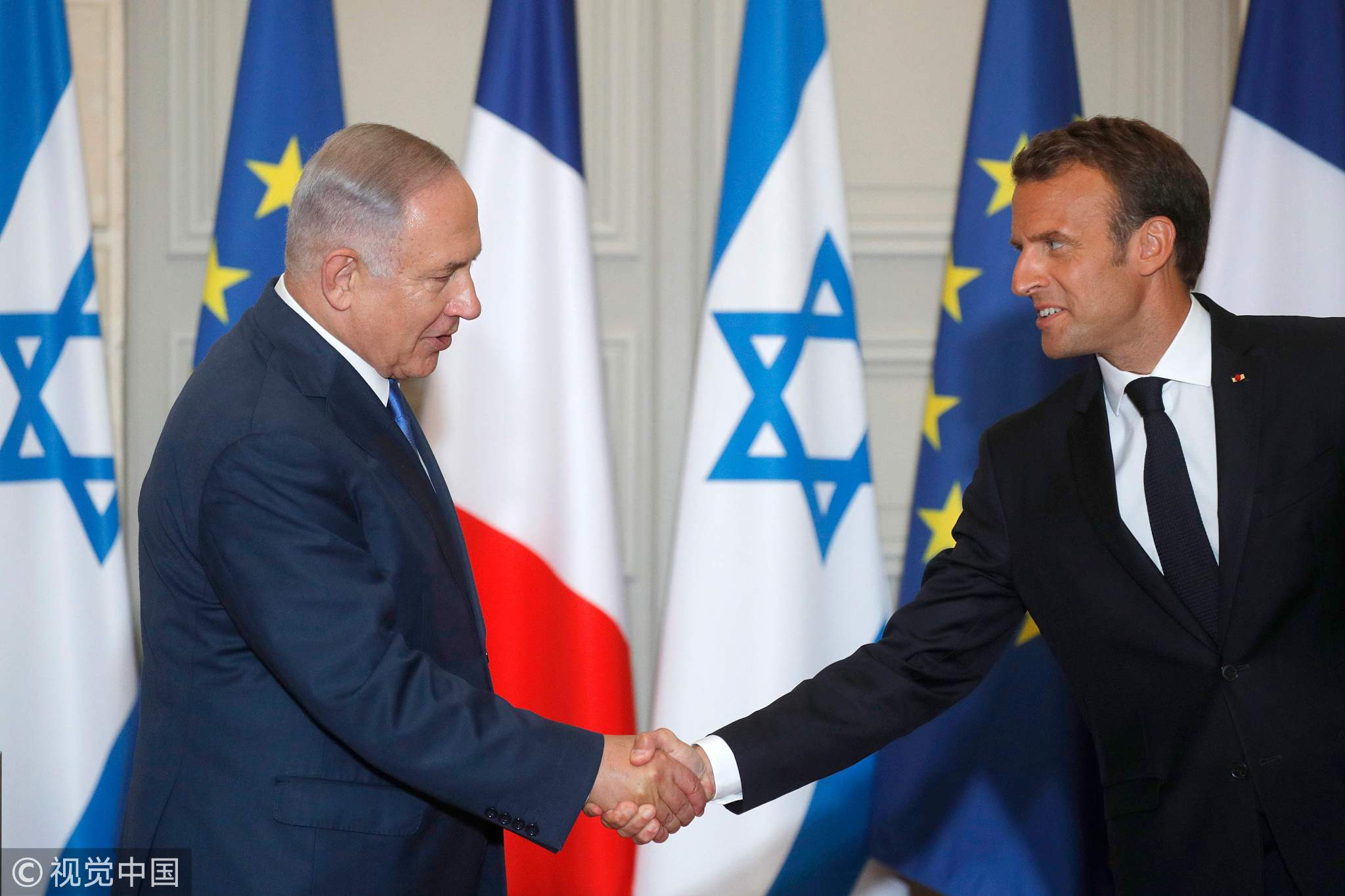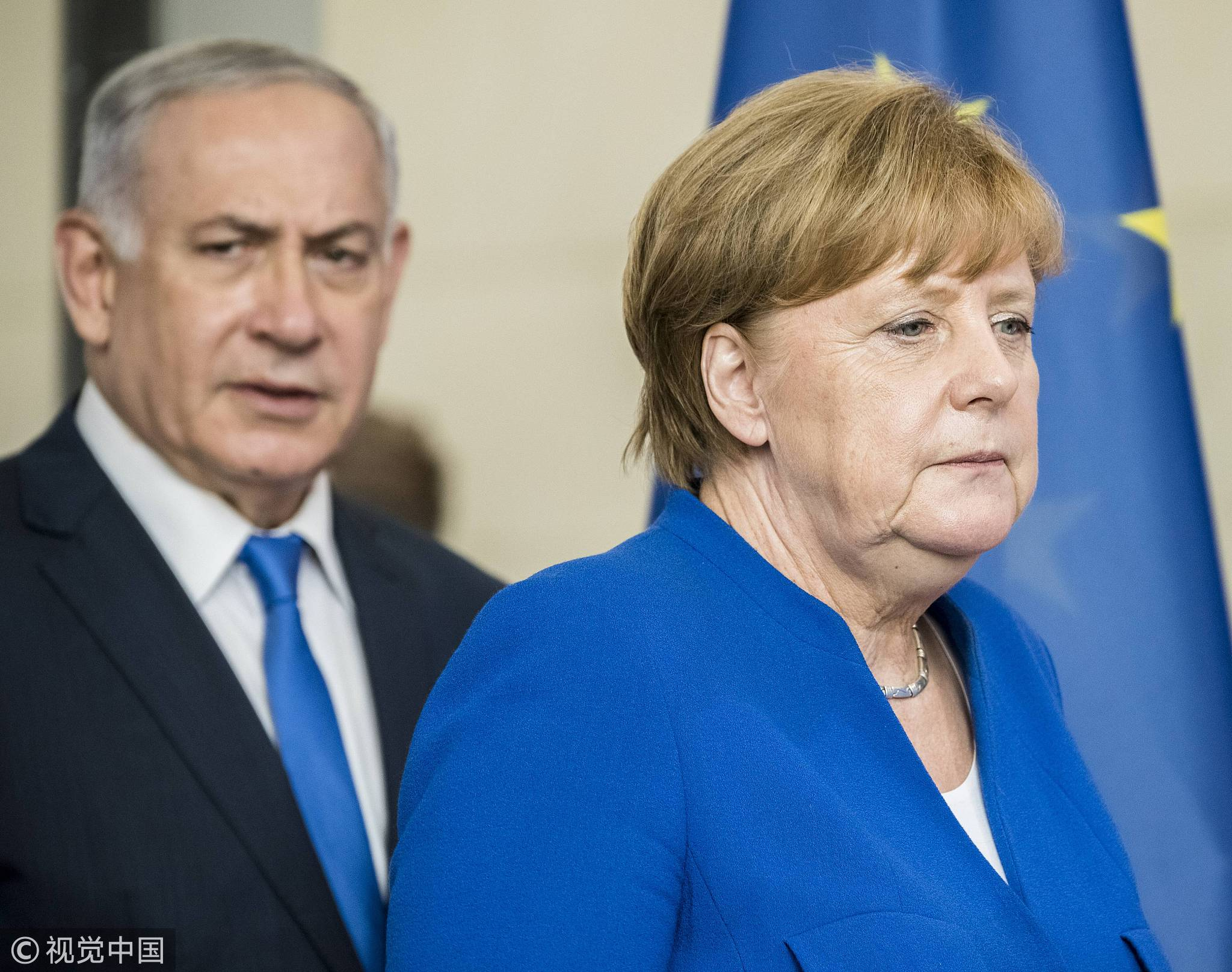
Opinions
10:57, 06-Jun-2018
Opinion: Netanyahu’s attempt to drive a wedge between Europe and Iran is losing ground
Ghanbar Naderi

Editor's note: Ghanbar Naderi is an Iranian columnist and political commentator. The article reflects the author's opinion, and not necessarily the views of CGTN.
On Monday, June 4, Israeli Prime Minister Benjamin Netanyahu travelled to Europe to promote his hardline approach on Iran.
Much to his chagrin, he still faces a stiff response from European leaders who are keen on salvaging the 2015 Iran nuclear deal. The Israeli leader is free to brush aside European insistence that the hard-fought agreement is the best option to prevent Tehran getting the bomb and to head off a regional arms race. He can claim it has brought Tehran closer to becoming a nuclear power. Netanyahu can even oppose European efforts to sustain it. But that’s all really.
Contrary to what the US and Israel say, Europe insists the “not perfect” deal works and Iran has abided by it. They have even come up with plans that include short- and medium-term measures to build trade with Iran, contingent upon verification of continued Iranian compliance with the deal and additional reforms.
Distrust and caution are the parents of security

Israeli Prime Minister Benjamin Netanyahu (L) shakes hands with French President Emmanuel Macron during a joint press conference with the French President after a meeting at the Elysee Palace in Paris, on June 5, 2018. /VCG Photo
Israeli Prime Minister Benjamin Netanyahu (L) shakes hands with French President Emmanuel Macron during a joint press conference with the French President after a meeting at the Elysee Palace in Paris, on June 5, 2018. /VCG Photo
Netanyahu is in the know that German Chancellor Angela Merkel, French President Emmanuel Macron and British Prime Minister Theresa May are determined to save the nuclear deal. They, however, share his concerns about Iran’s so-called destabilizing role in the Middle East.
Germany, France and the United Kingdom, the signatories of the Joint Comprehensive Plan of Action (JCPOA), don’t trust Netanyahu. The three leaders are cautious to preserve the landmark deal for Europe’s security after President Donald Trump's May 8 decision to withdraw.
To that end, Europe seeks to limit the impact of Washington’s NPT-illegal sanctions and continue trade with Tehran. The three European leaders have urged Washington not to punish countries that want to stick to the pact. China and Russia have also vowed to continue with the deal. They have taken the lead, holding talks with Iranian President Hassan Rouhani to assure him of efforts to keep trade alive, despite orders from Trump to foreign companies to pull out or face an aggressive new sanctions regime.
Europe should still be careful not to act in ways that will be read in Tehran as moving the goalposts given Iranian domestic dynamics. Opinion is rapidly turning against any additional compromises or deals with what Tehran views as a mercurial US and an unreliable Europe. It’s totally unrealistic to believe that Iran will accept perpetual limits on its sovereignty.
Between a Rock and a Hard Place
Netanyahu is faced with two equally undesirable alternatives. He travelled to Europe to discuss ways to block Iran's expansion in the Middle East, mainly the presence of Iranian forces along the Syrian border with Israel, which he says is crucial to Israel's security.

Israeli Prime Minister Benjamin Netanyahu (L) meets German Prime Minister Angela Merkel in Berlin on June 4,2018./VCG Photo
Israeli Prime Minister Benjamin Netanyahu (L) meets German Prime Minister Angela Merkel in Berlin on June 4,2018./VCG Photo
Netanyahu claims “an Iranian departure from southern Syria alone will not suffice. Iran needs to leave Syria altogether." The Europeans have always acknowledged Netanyahu’s concerns over Iran's regional role and its ballistic activities. The problem is that NATO's Secretary-General Jens Stoltenberg has also said “the alliance will not come to Israel's defence in case of an attack by Iran.”
Meaning, Europe cannot ask Iran to stop fighting terrorism or leave Syria, and the Israeli prime minister cannot drive a wedge between Europe and Iran for that matter. Netanyahu has already heard similar responses from German Chancellor Merkel, French President Macron and British Prime Minister May that “Israel is a partner, but not a member and that NATO's security guarantee does not apply to Israel.”
To complicate matters, Europe cannot help Israel to dislodge Iranian troops from Syria because there are no Iranian armed forces there. Iran has military advisers stationed in Syria upon an official request from Damascus. They have never attacked or threatened to attack Israel. They only provide vital support to the Syrian army and government in their fight against terrorist groups, including ISIL and Al-Qaeda.
No More Diplomatic Victory
Before his trip, the Israeli prime minister claimed, “I will meet there with three leaders and will discuss two subjects: Iran and Iran.” This is far from the truth. His trip is also about Syria, where Israel has repeatedly warned it will not tolerate Iranian forces so close and has conducted repeated overt and covert strikes on Syrian bases that allegedly house Iranian troops, drones and munitions.
The truth is, the Syrian army has completed preparations for an imminent offensive against the US-backed rebel-held areas in southwestern Syria. The plan is to liberate the area near the borders with Jordan and Israel. Damascus wants to wage the battle because the southwest is one of the big chunks of territory that still remains outside the control of the Syrian army.
At the first phase, the Syrian military is going to contribute efforts to reach a reconciliation deal with armed groups controlling the southern parts. If these efforts fail, the Syrian army and allies (Russian military and Iran-backed militias) will launch a military operation to defeat the militants and force their leadership to return to the negotiation table.
To stop this from happening, to advance its own interests, and to repeat its diplomatic victory after Trump voided the Iran nuclear deal, Israel has sent its diplomats to many capitals around the world, including Russia. Netanyahu’s three-day trip to Europe is also designed to discuss the short-term fate of Daraa city and should be seen in this context. He wants Europe (which seeks to foster a stable post-ISIL Syria) to reverse this trend by putting diplomatic pressure on Syria to stop the military operations, as the fall of the city, the birthplace of Syrian uprising, will sound the death knell for the US-led regime-change campaign.
For some good reasons, Europe wants none of this. Netanyahu cannot create a sense of urgency to put the burden of alleviating Israel’s security concerns in Syria on the European Union’s shoulders. On balance, it doesn’t make much sense for the three European leaders to try to address with Netanyahu what he could not get agreement on with the unicameral national legislature of Israel, the Knesset – getting a blank cheque for an open war with Israel’s archenemy in Syria that is backed by the United States and NATO.

SITEMAP
Copyright © 2018 CGTN. Beijing ICP prepared NO.16065310-3
Copyright © 2018 CGTN. Beijing ICP prepared NO.16065310-3